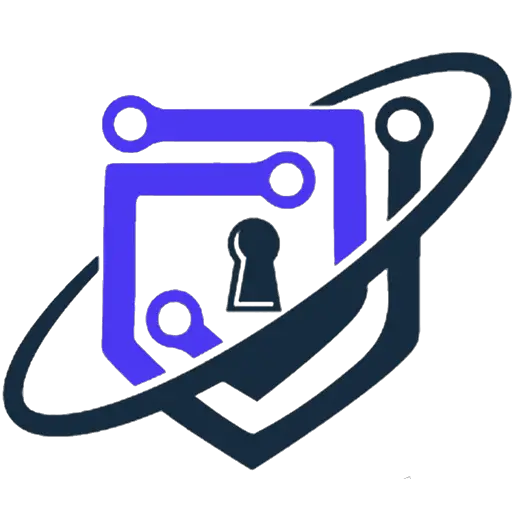Undoubtedly, ChatGPT stands out as one of the most remarkable inventions of 2021. Its wide-ranging capabilities and applications have opened up endless possibilities for human interaction and problem-solving. Furthermore, certain users have begun employing ChatGPT for the actual execution of smart contract audits. However, can ChatGPT audit a smart contract?
ChatGPT lacks the capability to conduct a comprehensive smart contract audit. While it can identify common vulnerabilities with specific patterns, a thorough audit demands an understanding of custom business logic and an innovative, out-of-the-box approach to analysis.
In this blog post, we are going to explain in detail why ChatGPT cannot perform a smart contract audit at least for now.
ChatGPT’s Strengths in Identifying Common Vulnerabilities:
In the realm of smart contract security, ChatGPT emerges as a valuable tool for initial screening, particularly in the detection of known vulnerabilities characterized by specific patterns. Leveraging its language model capabilities, ChatGPT can quickly analyze and identify common issues that may align with established vulnerability patterns. This proves particularly useful in the preliminary stages of smart contract auditing, allowing for a swift and automated screening process.
ChatGPT’s strength lies in its ability to recognize recurring vulnerabilities that have well-defined characteristics. For instance, it can identify patterns associated with common pitfalls such as reentrancy attacks, overflow vulnerabilities, or unchecked user inputs. This automated analysis serves as a valuable first step in the auditing process, offering a rapid assessment of potential areas of concern.
However, it’s crucial to note that while ChatGPT excels at recognizing known vulnerabilities, its capabilities are not exhaustive. The tool may miss nuanced or novel vulnerabilities that require a deeper understanding of custom business logic or innovative attack vectors. Therefore, while ChatGPT provides a valuable initial screening, it should be complemented with more specialized tools and expert human analysis to ensure a comprehensive smart contract audit.
ChatGPT Limitations in Full Smart Contract Audits
While ChatGPT might be good at detecting some common vulnerabilities, it is also not efficient at it either. Here is a list of limitations related to ChatGPT that stop it from actually being better than known smart contract scanners:
Lack of Code Execution Capability
ChatGPT faces significant limitations when it comes to compiling smart contracts and analyzing extensive lines of code. One of the fundamental challenges is its inability to execute code. Unlike traditional compilers or analysis tools, ChatGPT lacks the capability to interact directly with the codebase, hindering its capacity to identify runtime errors, validate syntax, or assess the actual functionality of the smart contract in action.
Moreover, analyzing a large amount of code poses scalability challenges for ChatGPT. The model has limitations in processing extensive and intricate codebases commonly found in complex smart contracts. The sheer volume of code may overwhelm the model, leading to incomplete or superficial analyses. This constraint makes it less suitable for in-depth examinations of substantial code repositories, where a comprehensive understanding of the code structure and interactions is essential for effective security assessments.
Dependency on Pre-existing Patterns
One notable limitation of ChatGPT in the context of smart contract audits is its dependency on pre-existing patterns. While the model is proficient at recognizing known vulnerabilities based on established patterns, it faces challenges when encountering novel or evolving threats that deviate from these recognized templates. The model’s effectiveness is contingent on the availability of historical data and training patterns up to its last training cut-off in 2021.
Smart contract vulnerabilities are dynamic, and attackers continually devise new strategies. ChatGPT’s reliance on historical patterns may result in it overlooking emerging threats that lack precedent. This limitation underscores the importance of complementing ChatGPT’s capabilities with expert human analysis and specialized tools that can adapt to evolving security landscapes.
Inability to Understand Complex Business Logic
An inherent limitation of ChatGPT in smart contract audits is its inability to fully comprehend complex business logic embedded within these contracts. Smart contracts often involve intricate, context-specific rules and conditions that require a deep understanding of the underlying business processes. ChatGPT, while proficient in natural language understanding, may struggle to grasp the nuanced intricacies of unique and complex business logic structures.
The challenge lies in the fact that smart contracts are not just code; they represent contractual agreements with specific business rules. ChatGPT’s limitations become apparent when attempting to decipher intricate conditional statements, decision trees, or industry-specific logic that goes beyond the conventional patterns it has been trained on.
Potential Lack of Up-to-date Knowledge
Another significant limitation of ChatGPT in the realm of smart contract audits is its potential lack of up-to-date knowledge. The model’s training data extends only up to its last update in 2021, making it susceptible to information gaps regarding the latest developments in blockchain technology, smart contract vulnerabilities, and emerging security best practices.
The blockchain landscape is dynamic, with ongoing advancements, new vulnerabilities, and evolving security standards. ChatGPT may not be aware of recent security issues, mitigations, or the latest coding practices in the fast-paced field of blockchain development. Consequently, while ChatGPT can offer valuable insights based on historical data, it may not be fully equipped to address contemporary challenges.
Collaborative Approaches for Effective Auditing:
Employing a multifaceted approach to smart contract auditing, combining ChatGPT, smart contract scanners, and manual analysis, constitutes an effective strategy for comprehensive security assessments. Initially, leveraging ChatGPT during development provides valuable insights into best practices and industry standards. ChatGPT’s natural language capabilities can offer guidance on coding conventions, security considerations, and recommended practices, aiding developers in crafting more secure and robust smart contracts.
Following the initial development phase, incorporating a smart contract scanner enhances the audit process. These tools are adept at quickly identifying common vulnerabilities by analyzing the code for known patterns. This automated phase serves as an efficient initial screening, rapidly highlighting potential issues that align with established vulnerabilities.
However, automated tools, including scanners, may have limitations in detecting nuanced or novel threats. Therefore, integrating manual smart contract scans by experienced auditors becomes paramount. Manual reviews allow for a deeper understanding of custom business logic, identification of non-standard vulnerabilities, and consideration of the broader context of the smart contract’s functionality.
This collaborative approach, starting with ChatGPT for guidance, transitioning to automated scanning for efficiency, and concluding with manual analysis for depth, ensures a thorough and adaptive smart contract audit. By combining the strengths of automated tools and human expertise, developers and auditors can collectively address a spectrum of potential security challenges, creating a robust defense against vulnerabilities in smart contracts.






Post comments (0)